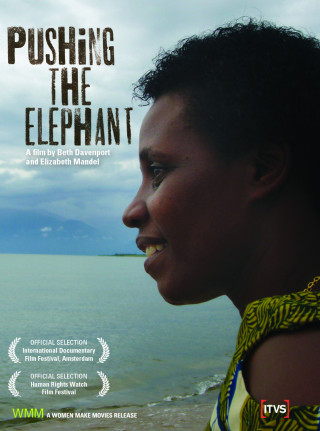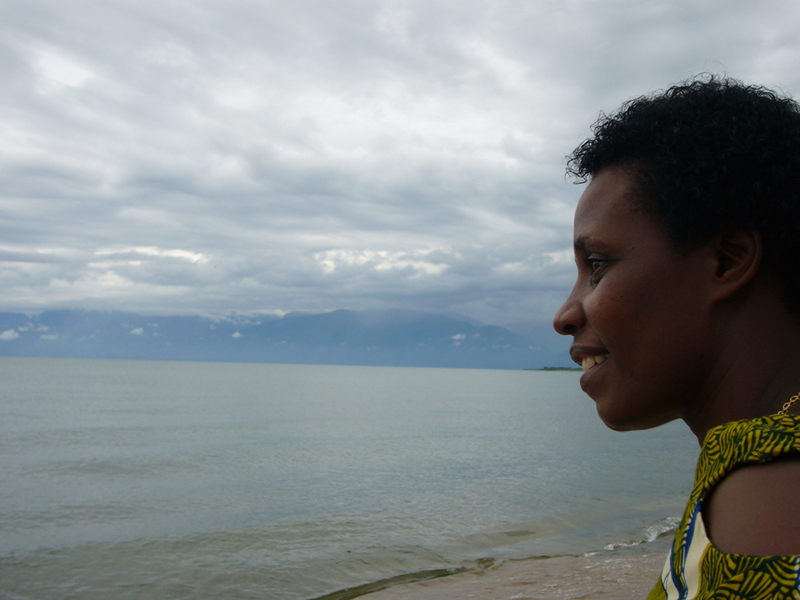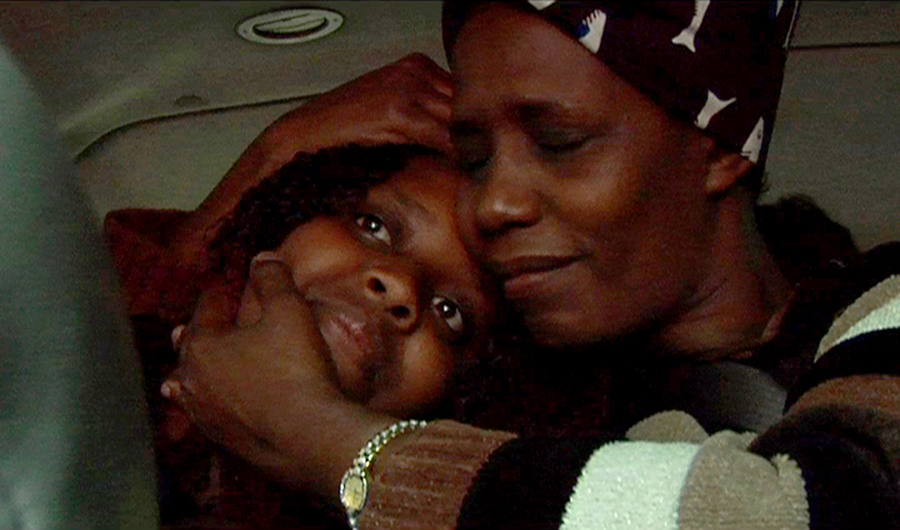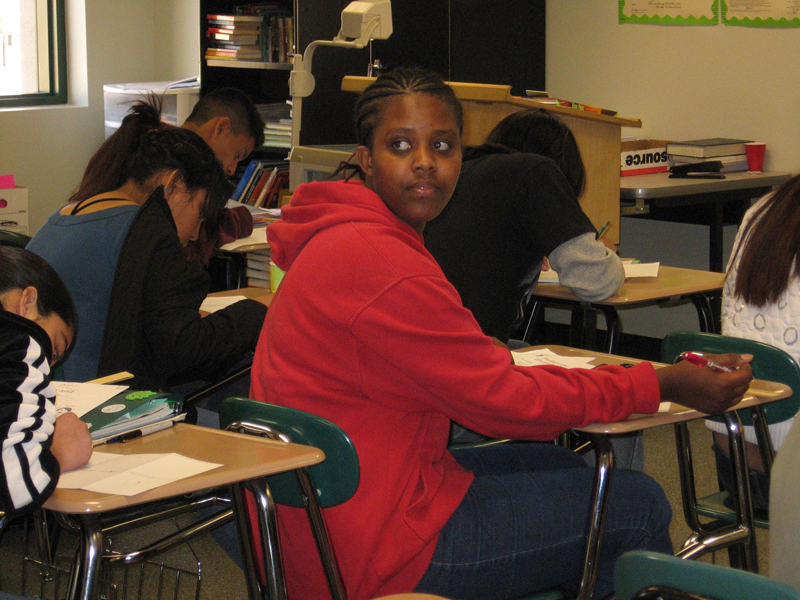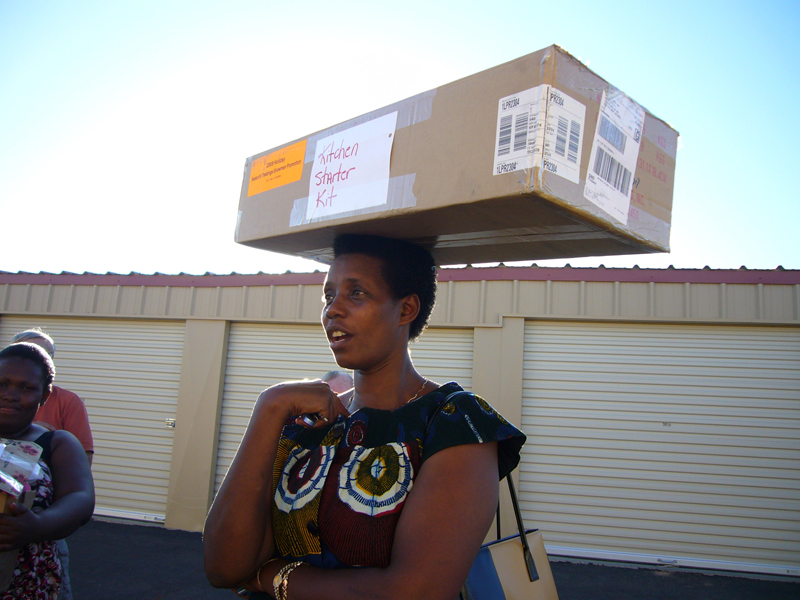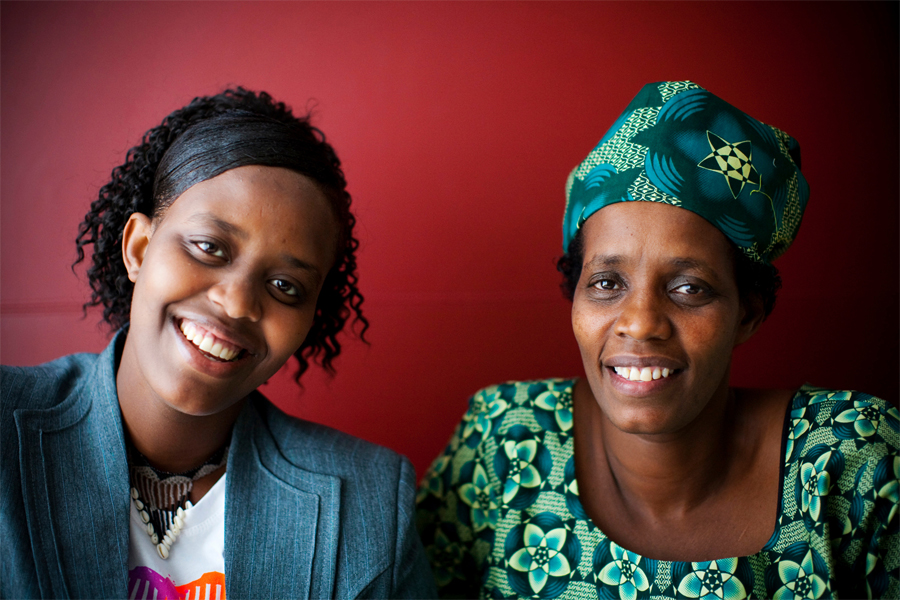SYNOPSIS
When war came to Rose’s village, she was separated from her five-year-old daughter, Nangabire. Rose managed to escape with nine of her ten children and was eventually resettled in Phoenix, Arizona. Over a decade later, mother and daughter are reunited in the US where they must face the past and build a new future. As mother and daughter get to know one another, they must come to terms with a painful past, and define what it means to be a survivor, a woman, a refugee and an American.
Through this intimate family portrait unfolding against the wider drama of war, we explore the long-term and often hidden effects of war on women and families, particularly those in traditional societies—financial despair, increased susceptibility to rape, and social ostracism. PUSHING THE ELEPHANT captures one of the most important stories of our age, a time when genocidal violence is challenged by the moral fortitude and grace of one woman’s mission for peace.
This is a powerful first-person portrait of an indomitable woman dedicated to peace and the healing power of forgiveness. A moving, joyful and hopeful chronicle of refugee experience and acculturation in the U.S. today, PUSHING THE ELEPHANT is also an insightful portrait of the changing face of immigration in our increasingly diverse society.
PRESS
“The strength of "Pushing the Elephant" lies in the way it brings this larger-than-life inspirational figure into the everyday domestic realm, where activism becomes a function less of heroic destiny than of conscious choice, open to anyone. A must-see educational tool…”
“‘Pushing the Elephant,’ is a glimpse into the life of a true humanitarian, a courageous woman who mixes her deep religious faith with a compassion and a sense of mission that just may keep us from closing our eyes and our hearts once again to the slaughter of innocents."
“Pushing the Elephant is an extremely well done documentary filled with strength and sensitivity. It tackles the complex issues surrounding the direct and indirect effects of genocidal violence while providing a sense of hope through positive action. Highly recommended.”
SCREENING HIGHLIGHTS AND AWARDS
- 2011 Women's International Film and Arts Festival, Winner, Best Documentary Feature
- International Documentary Film Festival, Amsterdam (IDFA)
- Human Rights Watch Film Festival, New York and London
- DocuWeeks, ArcLight Cinema, LA World Bank
- United Nations' Commission on the Status of Women
- Yale University's Reblaw Conference
- USAID
- DocuWeeks, IFC Theater, NYC
- Capitol Hill - IVAWA Caucus Breakfast
- Brooklyn Academy of Music (BAM), Creatively Speaking Series
- Columbia University, SIPA
- USC-Institute for Global Public Health
- Brown University
- HRWFF, NW Film Center Portland, OR
- Nassau Community College
- Congo in Harlem, Maysles Cinema
- Private screening: Robin Reed, NYC
- Trenton Film Festival
- Seton Hall, Whitehead School of Diplomacy
- Picture House, Sarah Lawrence
- Special Oxfam Screening
- Museum of Tolerance, Human Rights Day
- ReFrame Peterborough International Film Festival
ABOUT FILMMAKER(S)
Having worked in various capacities at Big Mouth since 2003, Beth Davenport has over eight years of production and outreach experience in television, commercials and award winning documentaries for P.O.V., Sundance Channel, BBC and Arte France as well as directing advocacy videos and short films. Her film credits include: the Emmy-nominated film Deadline, Thomas Balmes' Wrongful Death and Election Day. Beth is currently a producer at Arts Engine, Inc./Big Mouth Films and is producing Asexuality: The Making of a Movement, directed by Angela Tucker. Davenport was a mentor for the IFP Documentary Rough Cut Lab for three years and is a NYFA Fellow. She graduated with a degree in Sociology and Peace and Conflict Resolution from Wayne State University. (02/11)
Elizabeth Mandel produced the film "Arctic Son," and was a co-producer on Jennifer Fox's film "Flying: Confessions of a Free Woman." She directs and produces educational videos for non-profit organizations such as Jewish Women International and for Johns Hopkins Medical Center's Project Restore, in addition to producing spots for Nickelodeon and Sundance Channel. Elizabeth has also served as an associate producer for Jasmine Dellal's, "When the Road Bends" and was the producer of the "Deadline" DVD. Prior to joining Big Mouth in 2001, she worked for the United Nations and the Asia Foundation. She has also worked in India, Cambodia, Nepal and Japan on a variety of community development, leadership training and citizen participation projects. She holds a Master's Degree from Columbia University in International Affairs, with a focus on Economic and Political Development and graduated magna cum laude and Phi Beta Kappa from Columbia University with a B.A. in Religion and East Asian Cultures. (7/12)

